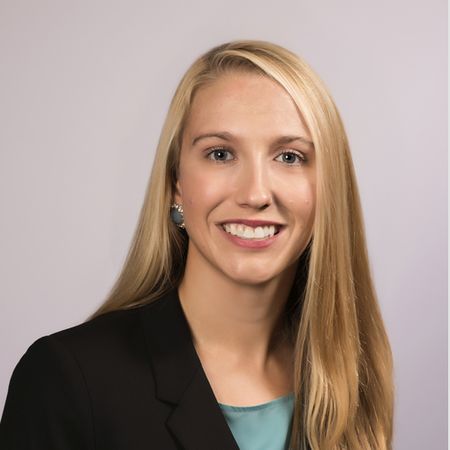Nov 5, 2020
Tueth Keeney Cooper Mohan & Jackstadt, PC has been recognized regionally as a “Best Law Firm” in St. Louis, by U.S. News – Best Lawyers ®, for the eleventh consecutive year. The firm has received a First Tier ranking in Education Law, Employment Law – Management, Immigration Law, Litigation – Labor & Employment, as well as a Tier Two ranking in Commercial Litigation. In addition, five of our attorneys in St. Louis are included in the Best Lawyers in America
read more
Oct 16, 2020
Tueth Keeney’s Jim Layton is the author of a chapter in the ninth edition of the Eighth Circuit Appellate Practice Manual, released in October 2020 . The Manual takes a comprehensive look at current practice before the U.S. Court of Appeals for the Eighth Circuit. That court, based in St. Louis, hears appeals from U.S. district courts in seven states. Along with authors of other chapters, Jim also spoke at a continuing legal education program on
read more
Oct 12, 2020
The American Academy of Appellate Lawyers has issued recommendations for lawyers arguing by remote video link (Zoom, Teams, Webex, etc.), prepared by the Academy’s Task Force on Remote Oral Argument. Tueth Keeney’s Jim Layton, a Fellow of the Academy, chairs the task force. The recommendations are available here https://www.appellateacademy.org/publications/Counsel_AAAL_Remote_Task_Force_Recommendations_for_Counsel_Final.pdf. The recommendations emphasize that argument by video is a new form of argument-not just a different venue for the same thing. For example, arguing counsel must consider
read more
Aug 19, 2020
by James R. Layton and Margaret A. Hesse Recently, researchers reported on the gender of attorneys arguing before the U.S. Supreme Court and other appellate courts. As a woman-owned law firm, those reports caught our attention. As the Missouri Supreme Court returns to oral arguments after its summer break, we contribute to that growing body of articles with a look at the gender of those who argue before that Court.
Women on the bench
Before turning to who argues at
read more
Jul 23, 2020
by Jim Layton Governor Parson has completed action on bills passed by the 2020 Missouri General Assembly. Many of the bills the governor signed may affect Tueth Keeney clients. Among the significant provisions of those bills, most of which become effective August 28:
- The tort reform bill changes the law regarding punitive damages. It imposes new procedural requirements and a higher burden of proof, bars juries from basing punitive damage awards on harm to persons other than plaintiffs in
read more
Jul 22, 2020
by Jim Layton The American Academy of Appellate Lawyers, a select group of very experienced appellate advocates, has published its recommendations for appellate courts to hear oral arguments remotely. The recommendations were prepared by a task force led by Academy Fellow Jim Layton of Tueth Keeney. They were based on the remote argument experience of Academy Fellows, their colleagues, and clients. The recommendations emphasize three principles:
- That remote oral argument be used instead of submitting on the briefs cases
read more
May 6, 2020
Appellate advocacy has changed quickly and dramatically since the arrival of COVID-19, with courts across the country using audio and video links to hold oral arguments electronically. This week, even the U.S Supreme Court joined the movement, holding its very first telephone oral arguments – which included questions from Justice Ruth Bader Ginsburg from her hospital room, and an unprecedented number of questions from Justice Clarence Thomas, who is usually quiet during arguments. Tueth Keeney’s Jim Layton has been appointed
read more
Apr 27, 2020
Jim Layton, who leads Tueth Keeney’s appellate practice group, presented “Preparing to Argue to Appellate Judges, From Your Home to Theirs: Remote Appellate Advocacy in the Wake of COVID-19.” Attending – by video feed – were 565 lawyers from 46 states and three U.S. territories; others have since watched a recording of the program. The program was presented by the National Attorneys General Teaching and Research Institute (NAGTRI), for which Jim is a regular instructor. Appellate
read more
Mar 18, 2020
 Aigner S. Carr
Aigner S. Carr,
 Celynda L. Brasher
Celynda L. Brasher,
 Elizabeth J. Mooney
Elizabeth J. Mooney,
 James R. Layton
James R. Layton,
 Kate L. Nash
Kate L. Nash,
 Kylie S. Piatt
Kylie S. Piatt,
 Laura E. Hemmer
Laura E. Hemmer,
 Lisa J. Berns
Lisa J. Berns,
 Mandi D. Moutray
Mandi D. Moutray,
 Margaret A. Hesse
Margaret A. Hesse,
 Melanie Gurley Keeney
Melanie Gurley Keeney,
 Michelle H. Basi
Michelle H. Basi,
 Veronica E. Potter
Veronica E. Potter Frequently Asked Questions
Coronavirus Pandemic Planning: Holding Legally Compliant Board Meetings During this Time of Uncertainty
Below, we are listing answers or guidance we are providing in response to questions we have received relating to holding board meetings during this time of uncertainty. As time progresses, we will continue to provide updates or amended guidance, where necessary.
Can we hold a meeting without having anyone physically attend the meeting? Yes. However, the manner in
read more
Feb 18, 2020
Today Jim Layton of Tueth Keeney filed a brief for the Missouri Organization of Defense Lawyers (MoDL) as amicus curiae (“friend of the court”) in the Missouri Supreme Court in Moore v. Bi-State. The question before the Court is whether caps on damages that apply to most Missouri political subdivisions””such as school districts and counties’ apply to Bi-State, the entity that operates mass transit in the St. Louis area. Jim’s brief points out that the Missouri Supreme Court has consistently
read more

 Ian P. Cooper
Ian P. Cooper James R. Layton
James R. Layton Margaret A. Hesse
Margaret A. Hesse Melanie Gurley Keeney
Melanie Gurley Keeney Aigner S. Carr
Aigner S. Carr Celynda L. Brasher
Celynda L. Brasher Elizabeth J. Mooney
Elizabeth J. Mooney Kate L. Nash
Kate L. Nash Kylie S. Piatt
Kylie S. Piatt Laura E. Hemmer
Laura E. Hemmer Lisa J. Berns
Lisa J. Berns Mandi D. Moutray
Mandi D. Moutray Michelle H. Basi
Michelle H. Basi Veronica E. Potter
Veronica E. Potter